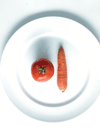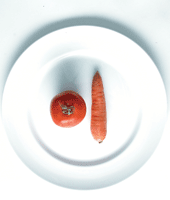Advertisement
Irritable Bowel Syndrome Support
In Canada, six million people suffer from irritable bowel syndrome (IBS), and currently its symptoms are second only to the common cold as the most frequent cause of absenteeism from work and school. IBS is commonly characterized by abdominal pain and altered bowel function such as constipation and diarrhea. Even worse, some IBS sufferers alternate … Continued


In Canada, six million people suffer from irritable bowel syndrome (IBS), and currently its symptoms are second only to the common cold as the most frequent cause of absenteeism from work and school.
IBS is commonly characterized by abdominal pain and altered bowel function such as constipation and diarrhea. Even worse, some IBS sufferers alternate between bouts of constipation and diarrhea. Some people have mild symptoms, while others have chronic, disabling symptoms.
Eliminate the Obvious
IBS is a diagnosis of exclusion, meaning that, if a doctor can’t determine a cause for the digestive symptoms (Crohn’s or colitis), a diagnosis of IBS is likely to be made. However, other conditions, including parasites, candida, infectious diarrhea, and lactose intolerance, should be ruled out.
There is evidence that food sensitivities and allergies may play a causative role in IBS, as they are found in up to one-third of those afflicted. The most common allergens are dairy and grains (especially wheat and corn). Other trigger foods include coffee, tea, citrus, and chocolate. High-sulphur foods garlic, onions, leeks, broccoli, cauliflower, cabbage, and Brussels sprouts produce gas, which can also trigger IBS symptoms.
Eat Smaller Portions
The average person’s colon contracts within an hour after eating, often resulting in the urge to eliminate. For the person with IBS the urge may come sooner, often accompanied with cramps and diarrhea. This is especially true if the meal is large.
Lack of fibre can also contribute to IBS, because sufficient fibre is needed to keep food moving through the digestive tract. When food sits in the colon for long periods it can begin to ferment, producing gas, which sets off IBS symptoms.
As triggers can vary widely between individuals, it is important to discover which specific foods affect each IBS sufferer. This can be achieved by an elimination diet, where suspected foods are removed for a period of time to see if symptoms decrease.
Take Vital Nutrients
As the cause of IBS is still unknown, it is vital to provide your intestines with the required nutrients to keep them functioning normally. Two main nutrients are necessary to rebuild the intestinal lining, L-glutamine and N-acetyl- glucosamine. L-glutamine has been shown to increase intestinal villous height and stimulate mucosal cell growth in the intestinal tract, while N-acetylglucosamine is required for tissue repair mechanisms.
Research shows a link between IBS and an overgrowth of “bad” intestinal bacteria. In 2003, peppermint oil was shown to improve IBS symptoms because of its antimicrobial activity. Supplementing with probiotics to balance the “good” and “bad” intestinal bacteria may also be warranted.
Use Soothing Herbs
For acute IBS attacks, antispasmodic herbs can be helpful to relieve cramps. In fact, according to the Journal of the American Medical Association in 1998, a combination of 20 Chinese herbs, including wormwood (Artemisia absinthium), ginger, (Zingiber officinale), bupleurum (Bupleurum chinense), schisandra (Schisandra chinensis), and dan shen (Salvia miltiorrhiza), has been found effective with IBS sufferers. Traditional antispasmodic herbs include camomile, fennel, and peppermint. Herbs that are soothing to the intestinal tract, such as fenugreek, may also be helpful.
Although IBS is a serious problem, it is not life threatening and can be managed by diet and lifestyle changes, along with natural supplementation.
By following the preventive steps above and using a combination of Chinese and Western antispasmodic herbs during acute flare-ups, IBS symptoms can be brought under control.
IBS Symptoms
The symptoms of IBS can vary from person to person and may include:
- Diarrhea and/or constipation (chronic or alternating)
- Abdominal pain or spasm
- Mucus in stool
- Bowel urgency and incontinence
- Abdominal pain relieved by defecation
- Bloating
- Sensation of bowel not emptying completely
Steps to Regain Your Quality of Life
The following steps can be taken to deal with IBS:
- Rule out underlying causes (possibly candida or parasites).
- Determine your “trigger” foods and avoid them.
- Eat five to six smaller meals per day, rather than two to three large meals.
- Increase fibre intake with a mix of soluble and insoluble fibre such as flax.
- Drink plenty of purified water.
- Replenish intestinal flora with probiotics (acidophilus and bifidus).
- Use L-glutamine and N-acetylglucosamine to rebuild the intestinal tract lining.




